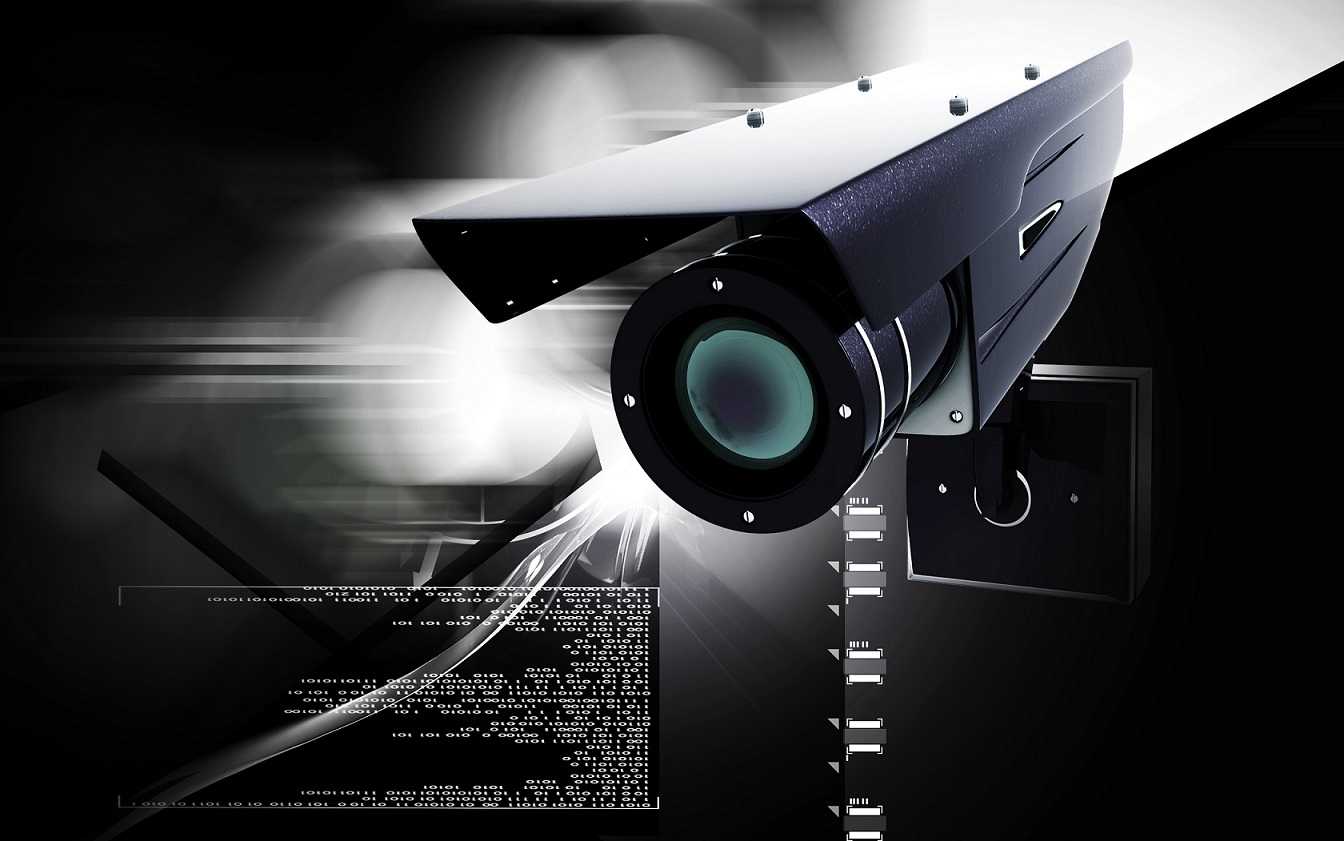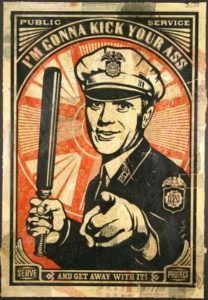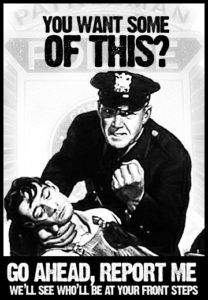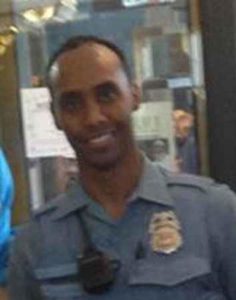
Are Photographers Terrorists? | SnällaBolaget.com
“In this day and age…”
“Given the times we live in…”
“With everything that’s going on…”
If you’re a street photographer, an architecture photographer, if you like cityscapes or just snapping candid shots of things and people that you see, you may have heard any or all of these phrases before. And if you’re like many of our visitors and readers, and work in law enforcement or security, you may even have uttered any or all of these on some occasion or other. Photographers have become a frequent target for these kinds of phrases, especially in the US, and they come from both law enforcement officials, agents and security officers from many different departments and companies. Common to all of the phrases and the people who utter them, is that in most cases, they’re in the wrong place.
So are photographers terrorists? In this day and age, do you really have to watch them, question them and jot up lengthy reports on their appearance, disappearance or presence? And what should you do, if you’re a photographer encountering these phrases? What should you do, if you work in LE or security, and encounter any of these dreaded image capturing renegades? We’re going to take a quick look.
For the photographers
Look, we know you’re not terrorists. In their heart of hearts, we suspect that most of those nosy law enforcement agents and security officers also know that. In most countries around the world, at least the ones that are somewhat civilized, taking pictures isn’t a problem at all, and will hardly ever cause issues to the one carrying the camera, almost no matter what or who he or she points it at. There are certainly exceptions – most countries around the world have things and places that actually are illegal to take pictures of, but chances are that you won’t ever get near enough to them to try in the first place. So what’s the deal?
The climate among law enforcement in the US is one of extreme paranoia. We’re going to focus on the US, since this seems to be where the brunt of the issues appear to be located. That paranoia we see today is hard to understand. It seems utterly unfounded. There have only been a limited number of terrorist attacks in the US since 9/11, and certainly not a single one as grievous. Terrorism in the US is mostly carried out by natural born citizens, and the international representation is minute. The crux of the matter isn’t even tied very closely to terrorism or crime – it seems to hinge on a misguided belief that terrorists and criminals will carry out some kind of “surveillance” and intelligence gathering at the target before carrying out whatever plan they are hatching.
This is a false assumption. There is very little evidence that terrorists have ever appeared in person at a target of any kind, and there seems to be no reason to think that they ever would. But this is the reasoning behind targeting photographers and videographers, whether you’re taking stills or video, blogging, vlogging or producing “fine art”, whatever that might mean to you and your audience.
In the US, there are well tried and established legal precedence and law, both when it comes to the constitution and in laws and regulations both on the state and federal level, that help photographers and anyone with a camera. Taking pictures can’t be made into something suspicious enough on its own to warrant any kind of detention or search, and as long as a photographer in the US is on public land, or a publicly accessible area, there is nothing that can stop that photographer from taking pictures and video of anything they can see. This has been clearly established time and again, but don’t expect to avoid all trouble just because of that.
The law enforcement community in the US is sorely under educated. Where most modern countries around the world will train even their basic patrolman for several years, while in the US, such officers, even sergeants and lieutenants, they may only have training measurable in weeks. In smaller, rural areas, you may still encounter sheriffs and constables with no formal legal or law enforcement training at all. While the latter are clearly the most likely to not be fully up to date on what’s going on, they’re also the most likely to know that they don’t know – making the experience that much easier for you as the photographer.
Law enforcement in larger cities seem to be even more entrenched in their pool of paranoia and relative ignorance. Examples of assaults, arrests, detentions and violations against photographers and videographers are piling up. A quick YouTube search shows around sixty thousand results, only focusing on the targeted kinds of “audits”, designed to check the reaction of law enforcement specifically to the appearance of a citizen not breaking the law with a camera. In many of these, the results are not good.
We’ve commented on the dramatic lack of training and education in US law enforcement before, and it is unlikely that this will change any time soon. In the mean time, photographers and videographers venturing out in the US, whether you’re a tourist or a citizen, will do well to avoid US law enforcement as much as possible – advice we extend to anyone, really – and read up on their rights and duties thoroughly before taking their camera out. If you’re a tourist, keep your embassy’s contact information on you at all times, and be prepared to use it. You might do well to inform your embassy or consulate about your planned activities and routes, and be clear about your concerns so that they can give you proper advice and be ready to respond if and when they get your call.
Or, stick to tourist friendly, low paranoia countries with educated police and law enforcement.
And for law enforcement…
We’re a security website. Blog. Resource. Whatever you might call it. We like calling out bad security practices and inform the public about important things that they can do to make themselves and their surroundings safer and more secure. Our aim isn’t to rag on law enforcement or those who work in security – our aim is to make our societies into better places, more secure places with more understanding between those who work in security, and those who are “outside” it.
With that said, it is clear that a trend of paranoia has been spreading through law enforcement and security these last fifteen years or so, and it is severely damaging the relationship between well meaning law enforcement and security, and the public. It isn’t down to “a few bad apples”, either. There are a lot of bad apples. Brown, ugly rotten ones. And when it comes to photographers, the divide seems to only broaden as time goes on. It is no secret that bad police officers get good police officers hurt and killed, and one of the clearest connections in that relationship, is the relationship with the public.
Knowing your limits and your duties should be first on your roster. When it comes to “intelligence gathering”, terrorists and criminals are much less likely to show up at a future target than to simply search for it on various map and street view services, as well as already existing information such as surveys and public information from health inspectors, building inspectors, architects and so on, than to show up and risk being seen at the future scene of a disaster or a crime. So, a photographer standing on a sidewalk, is actually one of the absolute least likely persons to be anyone you should worry about.

And remember – there’s nothing you can do about it anyway. Whether you’re law enforcement or security, you can’t ask for ID. You can’t search or detain, you can’t arrest or hinder, you can’t prevent. The only thing you CAN do, and the only thing you SHOULD do, is observe, report and move on. ORM should be your daily mantra. If you’re a law enforcement officer, it’s certainly your prerogative to approach and question, but it would be a consensual contact, and no one would be obliged in any way to answer your questions, and you’d be walking a tightrope from the start, balancing above an abyss called harassment and law suits.
In a time when the government is more likely to misuse personal information than anyone else, and a time when everyone and everything has cameras and recording equipment is a challenge, and one that it’s important not to take lightly. You will be recorded. You will appear in social media and on websites. And you will get in trouble if you’re not careful to stay within your limits and your boundaries. Making the most of what you CAN do, within those limits, is what will define you as a good, or a bad, apple.
If you’re in the US, you’re behind the curve. Most law enforcement officers in other parts of the world are ahead, and if nothing else, you’d like to be back at the top with the best, right? So make that happen. Today.
